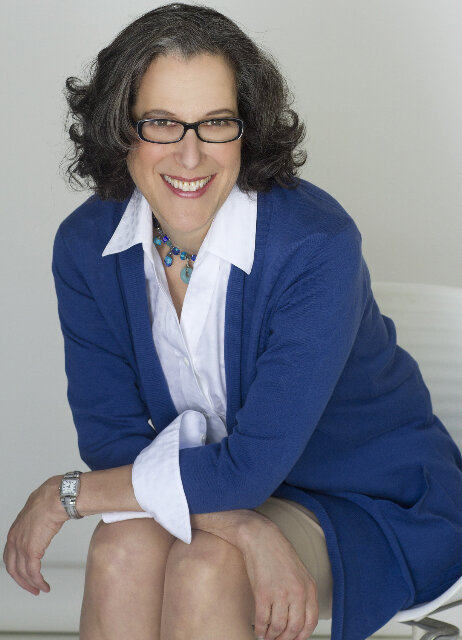Howard Gardner
The “Ask the Expert” feature is an interview series that connects you with industry thought leaders, providing an opportunity to participate in inspiring conversations.
This year we’ve spoken with Jane Pollak about possibility thinking, Dorothy Breininger about success, Dr. April Lane Benson about enlisting help, Leslie Josel about motivation, David Allen about time management, Peter Walsh about clutter, Sheila Delson about letting go, Laura Berman Fortgang about next steps, Judith Kolberg about change, and Sue West about fresh starts.
This month, I’m excited to have with us cognition, learning, and ethics expert Howard Gardner, who will share his insights and experience on multiple intelligences and learning.
Long before I met Howard, I became familiar with his theory of multiple intelligences through our youngest daughter’s third-grade teacher. She designed her classroom based on his theories to help each child honor and explore their strengths. Several years later, I had the pleasure of meeting and hearing Howard speak at a local music school. My deepest gratitude goes to Howard for graciously saying, “yes” to this interview and for taking the time to join us. Before we begin, here’s more about him.
Howard Gardner is a psychologist and writer who has been at Harvard for over fifty years. He is the Hobbs Professor of Cognition and Education at the Harvard Graduate School of Education. He is the author of twenty-nine books, including The App Generation: How Today’s Youth Navigate, Identify, Intimacy, and Imagination in a Digital World, Frames of Mind: The Theory of Multiple Intelligences, and Leading Minds: An Anatomy of Leadership and several hundred articles. Best known for his work on intelligence, creativity, and leadership, he has been studying the nature of good work, good citizenship, good digital play, and associated ‘goods,’ and trying to enhance their incidence in today’s world. You can connect with Howard through Howard Gardner or The Good Project websites.
OUR CONVERSATION
Linda Samuels: You are internationally known for developing the theory of multiple intelligences. What becomes possible when we understand that we process and learn in diverse ways?
Howard Gardner: There is greater understanding of other persons. Why, for example, they can approach a task in a way that is totally different than ours, and yet be equally, perhaps more successful.
At work and play, instead of looking for persons like us, we instead search for individuals with strengths and weaknesses that complement our own.
Linda: You once said that, “…when we study plants or atoms, they are not affected by what we learn. But when we study human beings, our findings can affect the future behavior of humans.” What has been your most surprising discovery?
Howard: My most surprising scientific discovery: While the left hemisphere of the brain processes ordinary language, it is the right hemisphere that understands metaphor, irony, intention, and other speech acts.
Most surprising general discovery: Rather than being primarily cognitive, creative achievements emanate from a certain kind of personality and temperament living in a certain cultural context.
Linda: In your book, Intelligence Reframed, you wrote that we each have a “unique blend of intelligences.” How can we best embrace our uniqueness?
Howard: Not to worry about what we can’t do, nor to worry about whether we are like others. Instead, pursue what you love, what you can get better at, share it with others, and they will reciprocate.
Linda: Many professional organizers use their understanding about learning styles and differences to more effectively help their clients. How does your theory of multiple intelligences relate to learning styles?
Howard: Individuals continually conflate MI and learning styles and yet they are ENTIRELY different concepts. Learning styles refers to how people putatively approach a range of tasks; for example, person A has a playful style, while B has an obsessive one. Intelligences refer to the strengths of our several mental computers. I may compute language more effectively than I compute spatial relations, and yet I have every right to decide to become an architect rather than a poet.
Linda: How have your theories changed the way you personally interact with other people?
Howard: When assembling a team, I look for individuals whose abilities complement one another and think about how to get them to work synergistically.
Linda: Is there anything else you’d like to share that I haven’t asked?
Howard: What questions do you think cannot or should not be answered in 500 words or less?!
I love your sense of humor, Howard. Yes, I realize that it’s not a simple matter to craft the responses to all these questions using 500 words or less. I greatly appreciated your ability to do so. I apologize if this limited what you wanted to share. If you would like, feel free to add additional thoughts to the conversation (without any word limitations.)
Thank you for sharing your wisdom about learning, intelligence, and being human. The thread throughout your responses of appreciating our differences and embracing our uniqueness resonated with me. We aren’t the same. Why should we be? It’s in the sharing of these differences that makes life interesting.
I invite you to join Howard and me as we continue the conversation. Come share your thoughts about being wonderfully human. Which ideas speak to you?






